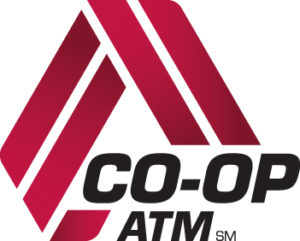THEFT & FRAUD PROTECTION
Identity Theft
What is Identity Theft?
Identity theft occurs when someone uses your personal identifying information like your name, Social Security number, credit card number, or other financial account information without your permission, to commit fraud or other crimes. The Federal Trade Commission (FTC) estimates that as many as 9 million Americans have their identities stolen each year.
How Do Thieves Steal An Identity?
Identity thieves may use a variety of methods to get hold of your information, including:
Dumpster Diving
Rummaging through trash looking for bills or other paper with your personal information on it.
Skimming
Stealing credit/debit card numbers by using a special storage device when processing your card.
Phishing
Pretending to be financial institutions or companies and send spam or pop-up messages to get you to reveal your personal information. See also our credit union web page called “You’ll never catch us phishing”.
Changing Your Address
Diverting your billing statements to another location by completing a change of address form.
Old-Fashioned Stealing
Stealing wallets and purses; mail, including bank and credit card statements; pre-approved credit offers; and new checks or tax information. They steal personnel records for their employers, or bribe employees who have access.
What Should You Do If Your Identity Is Stolen?
If you are a victim of identity theft, take the following steps as soon as possible. Keep a record with the details of your conversations and copies of all correspondence. Identity theft is serious and can cost you time, money, ruin your credit and destroy your good name. You may not discover it for months, after your loan application is rejected, or when you notice charges on your credit card statement that you didn’t make. You may even be arrested for crimes you did not commit. Contact one of the three major credit reporting agencies below and have them put a fraud alert on your file. You only need to contact one of the three companies to place an alert. The company you call is required to contact the other two. Fraud alerts can help prevent an identity thief from opening any more accounts in your name.
Equifax
1-800-525-6285
P.O. Box 740241
Atlanta, GA 30374-0241
Experian
1-888-EXPERIAN
P.O. Box 9532
Allen, TX 75013
TransUnion
1-800-680-7289
Fraud Victim Assistance Division
P.O. Box 6790
Fullerton, CA 92834-6790
Ask for a free credit report. Once you place the fraud alert on your file, you’re entitled to order free copies of your credit reports. When you get your credit reports, review them carefully. If you find fraudulent or inaccurate information, get it removed. Close any accounts that you suspect have been tampered with or opened fraudulently. File a report with your local police or police in the community where the identity theft took place and get a copy of that report or report number. Finally, you need to file a complaint with the Federal Trade Commission (FTC). By sharing your identity theft complaint with the FTC, you will provide important information that can help law enforcement officials across the nation track down identity thieves and stop them. You can use the or call the FTC’s Identity Theft Hotline, toll-free: 1-877-ID-THEFT (438-4338); TTY: 1-866-653-4261; or write Identity Theft Clearinghouse, Federal Trade Commission, 600 Pennsylvania Avenue, NW, Washington, DC 20580.




